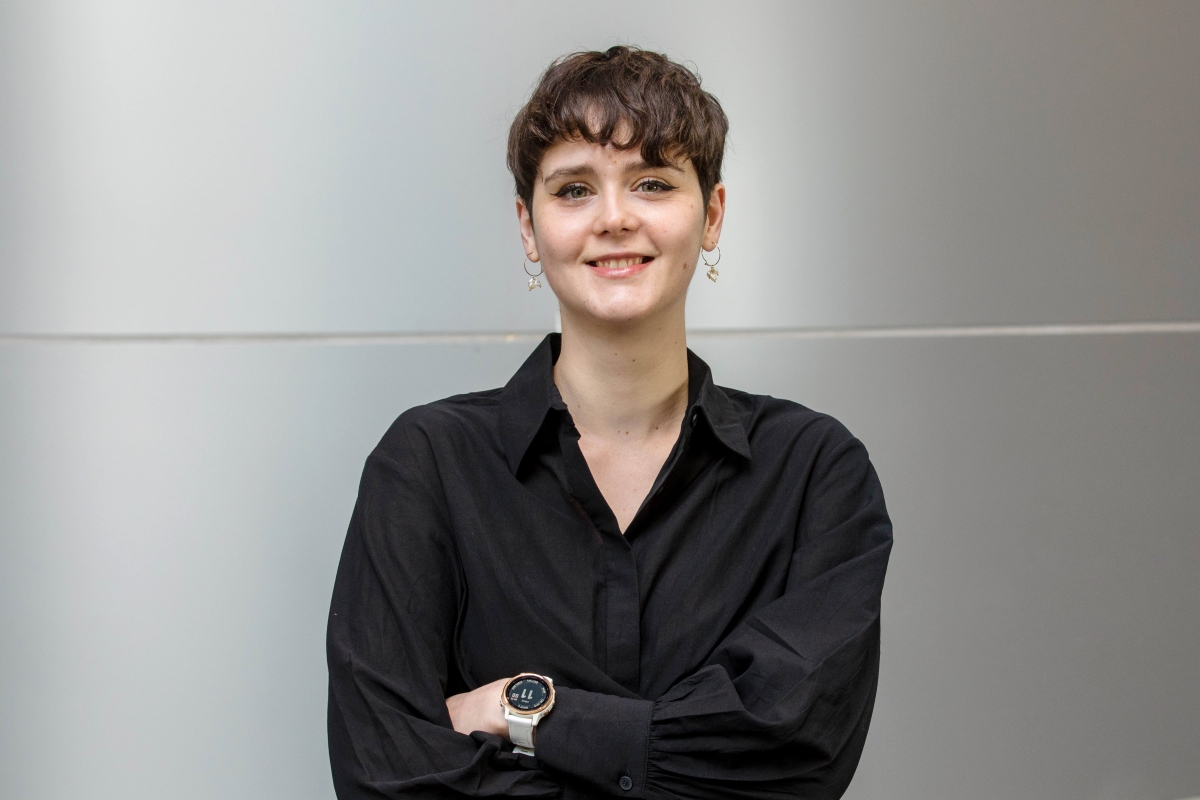Dr Caroline Holley
Dr Caroline Holley
(she, her)
Postdoctoral Researcher
Inflammasome Lab
Caroline joined the Inflammasome Lab in 2014 for a postgraduate Honours project supervised by Dr Kate Schroder. Her project involved using a flow cytometry-based assay to screen a panel of pattern recognition receptors for the ability to trigger oligomerisation of the inflammasome adaptor ASC. Caroline's research earned her a First Class Honours. In 2015, Caroline returned to the Inflammasome Lab as a research assistant. In January 2017, Caroline began her PhD in inflammation research.
CONTACTS AND LINKS
Email: c.holley@uq.edu.au
Office Telephone: +61 7 3346 2071
Institute for Molecular Bioscience
AWARDS AND PUBLICATIONS
AWARDS, GRANTS AND PRIZES
2018 Winner, ATA Scientific Encouragement Award
2017 PhD research support, The Yulgilbar Alzheimer's Research Program
2017 Global Change Scholar, The University of Queensland
EDUCATION
2014 BSc Honours, Supervisor: Dr Kate Schroder, The University of Queensland
2013 Bachelor of Science, The University of Queensland
Lawrence GMEP, Holley CL, Schroder K (2022).
Parkinson's disease: connecting mitochondria to inflammasomes. Trends in Immunology Nov;43(11):877-885. Pubmed
Lawrence GMEP, Holley CL, Schroder K (2022).
Come on mtDNA, light my fire. Immunity Aug 9;55(8):1331-1333. Pubmed
Milner MT, Lawrence GM, Holley CL, Bodea LG, Götz J, Burgener SS, Schroder K (2022).
Isolation and culture of pure adult mouse microglia and astrocytes for in vitro characterization and analyses. STAR Protocols Apr 11;3(2):101295. Pubmed
Holley CL, Schroder K (2020).
The rOX-stars of inflammation: links between the inflammasome and mitochondrial meltdown. Clinical and Translational Immunology 2020 Feb 10; 9(2): e01109. Pubmed
Holley CL, Coll RC, Schroder K (2018).
NLRC3 Restrains Responses to a T. Immunity Dec 18;49(6):989-991. Pubmed
Comment on:
The Innate Immune Sensor NLRC3 Acts as a Rheostat that Fine-Tunes T Cell Responses in Infection and Autoimmunity. Uchimura T et al (2018). Immunity Dec 18;49(6):1049-1061. Pubmed
Coll RC, Holley CL, Schroder K (2018).
Mitochondrial DNA synthesis fuels the NLRP3 inflammasome. Cell Research Nov;28(11):1046-1047. Pubmed
Comment on:
New mitochondrial DNA synthesis enables NLRP3 inflammasome activation. Zhong Z et al (2018). Nature Aug;560(7717):198-203. Pubmed
Monteleone M, Stanley AC, Chen KW, Brown DL, Bezbradica JS, von Pein JB, Holley CL, Boucher D, Shakespear MR, Kapetanovic R, Rolfes V, Sweet MJ, Stow JL, Schroder K (2018).
Interleukin-1β Maturation Triggers Its Relocation to the Plasma Membrane for Gasdermin-D-Dependent and -Independent Secretion. Cell Reports Aug 7;24(6):1425-1433. Pubmed
Boucher D, Monteleone M1, Coll RC1, Chen KW1, Ross CM, Teo JL, Gomez GA, Holley CL, Bierschenk D, Stacey KJ, Yap AS, Bezbradica JS, Schroder K (2018).
Caspase-1 self-cleavage is an intrinsic mechanism to terminate inflammasome activity. Journal of Experimental Medicine Mar 5;215(3):827-840. Pubmed
1Equal contribution
See Journal of Experimental Medicine for a complete list of citations, reviews and media attention this publication has received
Read news articles here
Research highlight:
Defusing inflammasomes. Sandstrom A, Vance RE (2018). Journal of Experimental Medicine Mar 5;215(3):723-724. Pubmed
Hill JR, Coll RC, Sue N, Reid JC, Dou J, Holley CL, Pelingon R, Dickinson JB, Biden TJ, Schroder K, Cooper MA, Robertson AAB (2017).
Sulfonylureas as Concomitant Insulin Secretagogues and NLRP3 Inflammasome Inhibitors. Chem Med Chem Sep 7;12(17):1449-1457. Pubmed
Masters SL, Lagou V, Jéru I, Baker PJ, Van Eyck L, Parry DA, Lawless D, De Nardo D, Garcia-Perez JE, Dagley LF, Holley CL, Dooley J, Moghaddas F, Pasciuto E, Jeandel PY, Sciot R, Lyras D, Webb AI, Nicholson SE, De Somer L, van Nieuwenhove E, Ruuth-Praz J, Copin B, Cochet E, Medlej-Hashim M, Megarbane A, Schroder K, Savic S, Goris A, Amselem S, Wouters C, Liston A (2016).
Familial autoinflammation with neutrophilic dermatosis reveals a regulatory mechanism of pyrin activation. Science Translational Medicine Mar 30;8(332):332ra45. Pubmed
Research highlight:
Mutation implicated in auto-inflammatory disease. El-Awady (2016). Nature Middle East May;581(7808):239-240. Nature Middle East
Copyright © 2017 - The University of Queensland


